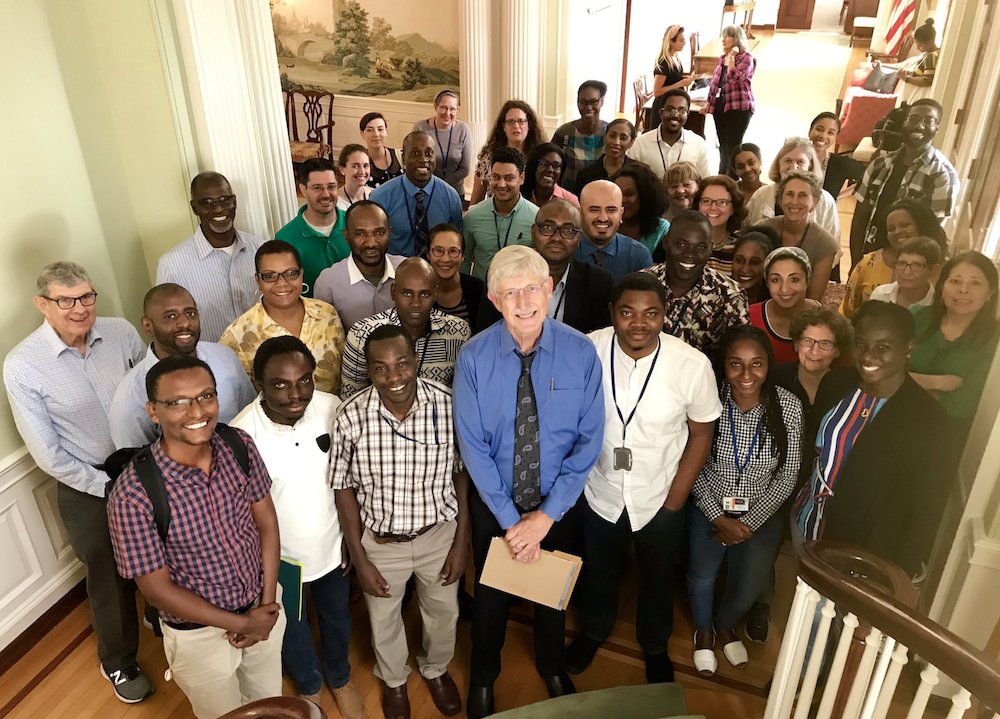AESA PROGRAMMES
- Building R&D Infrastructure
- Developing Excellence in Leadership, Training and Science in Africa (DELTAS Africa)
- Human Heredity and Health in Africa (H3Africa)
- Africa’s Scientific Priorities (ASP)
- Innovation & Entrepreneurship
- Grand Challenges Africa
- Grand Challenges Innovation Network
- Rising Research Leaders/Post-Docs
- AESA RISE Postdoctoral Fellowship Programme
- African Postdoctoral Training Initiative (APTI)
- Climate Impact Research Capacity and Leadership Enhancement (CIRCLE)
- Climate Research for Development (CR4D)
- Future Leaders – African Independent Research (FLAIR)
- Critical Gaps In Science
- Clinical Trials Community (CTC)
- Community & Public Engagement
- Mobility Schemes: Africa-India Mobility Fund
- Mobility Schemes: Science and Language Mobility Scheme Africa
- Research Management Programme in Africa (ReMPro Africa)
- Science Communication/Africa Science Desk (ASD)
- Financial Governance: Global Grant Community (GGC)
- AAS Open Research
- CARI Programmes
- Evidence Leaders Africa (ELA)

News
African Postdoctoral Training Initiative (APTI) announces second cohort of fellows to be hosted at NIH

162
African Postdoctoral Training Initiative (APTI) announces second cohort of fellows to be hosted at NIH
The African Postdoctoral Training Initiative (APTI) will soon welcome its second cohort of ten fellows to the National Institutes of Health (NIH). The post-doctoral training fellowship program, launched in 2019, is supported through a partnership of the Alliance for Accelerating Excellence in Science in Africa (AESA), NIH and the Bill and Melinda Gates Foundation, under the auspices of the Coalition of African Research and Innovation (CARI). AESA is a funding, agenda-setting and scientific prioritization, and programme management initiative created in 2015 through a partnership of the African Academy of Sciences (AAS)-hosting organisation, the African Union Development Agency (AUDA-NEPAD),
Fellows chosen for the second cohort come from seven African countries: Gambia, Ghana, Kenya, Nigeria, South Africa, Tanzania and Uganda. They will focus their research on a broad range of research areas, including genetic diseases and stigma; HIV-associated cryptococcal meningitis; malaria; the microbiome, respiratory infections and bioinformatics; pneumocystis and HIV-related opportunistic infections; protozoan parasites; and tuberculosis.
NIH institutes and centers hosting fellows include the NIH Clinical Center, National Institute of Allergy and Infectious Diseases (NIAID) and National Human Genome Research Institute (NHGRI).
Cohort 2: African Postdoctoral Training Initiative Fellows and NIH Hosts (2021-2022)
Fellow: Dr. Oluwaremilekun Ajakaye
Home institution: Adekunle Ajasin University, Nigeria
Host institution: National Institute of Allergy and Infectious Diseases (NIAID)
Research area: Protozoan parasites
Fellow: Dr. Abdoulie Bojang
Home institution: Medical Research Council (MRC) Unit, Gambia
Host institution: National Institute of Allergy and Infectious Diseases (NIAID)
Research area: Microbiome, respiratory infections, bioinformatics
Fellow: Dr. Benjamin Chimukangara
Home institution: Centre for the AIDS Programme of Research in South Africa (CAPRISA)
Host institution: NIH Clinical Center
Research area: Pneumocystis, HIV-related opportunistic infections
Fellow: Dr. Chinwe Chukwudi
Home institution: University of Nigeria, Nsukka
Host institution: National Institute of Allergy and Infectious Diseases (NIAID)
Research area: Protozoan parasites
Fellow: Dr. Michael Frimpong
Home institution: Kumasi Centre for Collaborative Research in Tropical Medicine, Ghana
Host institution: National Institute of Allergy and Infectious Diseases (NIAID)
Research area: Microbiome, respiratory infections, bioinformatics
Fellow: Dr. Daniel Kiboi
Home institution: Jomo Kenyatta University of Agriculture and Technology, Kenya
Host institution: National Institute of Allergy and Infectious Diseases (NIAID)
Research area: Malaria
Fellow: Dr. Olivia Matshabane
Home institution: University of Cape Town, South Africa
Host institution: National Human Genome Research Institute (NHGRI)
Research area: Genetic diseases, stigma
Fellow: Dr. Henrietta Mensah-Brown
Home institution: University of Ghana
Host institution: National Institute of Allergy and Infectious Diseases (NIAID)
Research area: Malaria
Fellow: Dr. Nicholaus Mnyambwa
Home institution: National Institute for Medical Research, Muhimbili Centre, Tanzania
Host institution: National Institute of Allergy and Infectious Diseases (NIAID)
Research area: Tuberculosis
Fellow: Dr. Kenneth Ssebambulidde
Home institution: The Infectious Diseases Institute, Makerere University, Uganda
Host institution: National Institute of Allergy and Infectious Diseases (NIAID)
Research area: HIV-associated cryptococcal meningitis
More Information
African Postdoctoral Training Initiative (APTI)
Alliance for Accelerating Excellence in Science in Africa
Bill and Melinda Gates Foundation
News release: New fellowship program will support the next generation of African scientific leaders
Fogarty/NIH news, January 23, 2019